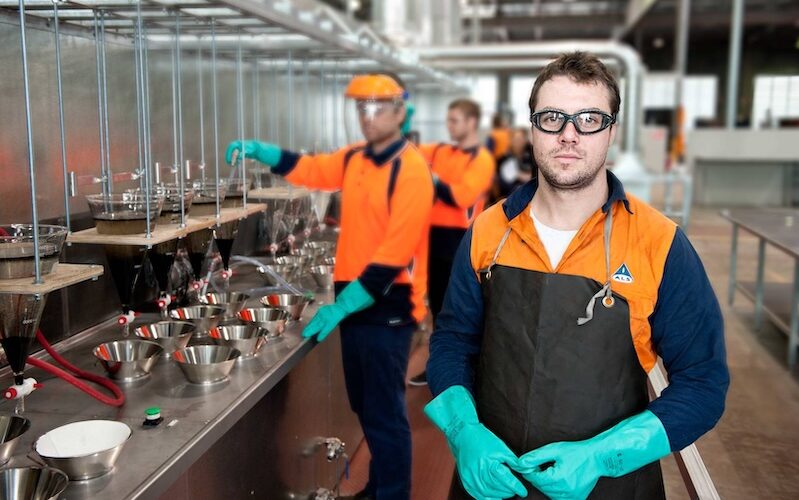The failure of regulators to prosecute large mining companies in Australia’s biggest coal fraud is a crushing disappointment for whistleblower Justin Williams. Stephanie Tran interviews the whistleblower.
In July 2019, Justin Williams joined TerraCom Limited as General Manager. Within days, he was confronted with evidence that coal quality certificates underpinning export contracts worth millions were being systematically altered. What began as an internal concern would spiral into a five-year ordeal, involving the Australian Federal Police, NSW Police, the corporate regulator, and ultimately, a courtroom battle that left Williams empty-handed.
Widespread fraud
Williams’ allegations echoed what later came to light in independent investigations. A PwC report, cited in ASIC’s court filings, found that in 12 out of 14 shipments tested, results had been altered in TerraCom’s favour, boosting the apparent value of exports by more than $1.1 million.
Mr. Williams’s submissions to the Federal Court have suggested that the value of the shipments affected is more than US$100 million. This is because when coal does not meet the agreed-upon quality, the cargo may be rejected, and in this case, 100% of the cargo’s value must be refunded by the seller to the buyer.
According to Williams, the implication was clear: coal was being made to look cleaner, more energy-dense, and therefore more valuable than it really was.
The practice was not limited to TerraCom. ALS, the global testing giant that admitted to the manipulation of results, and other coal companies implicated in systemic fraud, were never charged. Instead, ASIC pursued only a civil penalty against TerraCom, avoiding the larger industry-wide issues of fraud and potential foreign bribery.
Adding insult to injury, when ASIC lost its civil case against four TerraCom directors, taxpayers were left to foot the bill. Last month, court orders saw ASIC pay more than $3.6 million in legal costs for executives Wal King, Nathan Boon, Danny McCarthy, and Craig Ransley.
The AFP and ASIC
Williams first took his concerns to law enforcement. “I had first reported this matter to police rather than ASIC because I wanted law enforcement authorities to pursue the criminal charges of fraud and foreign bribery against the large coal companies and certification companies who had been committing the fraud for decades.”
“I was interviewed at length by the Australian Federal Police, who referred my concerns to ASIC,” he recalls.
Despite the significant evidence of wrongdoing, Williams alleges that the AFP declined to pursue the case due to concerns that it would affect the Australian coal industry.
“Contrary to what has been reported in relation to the findings of the Australian Federal Police, they told me that there was significant evidence of fraud perpetrated by ALS Limited but that they were concerned that they could not progress any legal action due to the significance of the coal industry to the Australian economy,” Williams said.
“The Australian Federal Police were very clear that they would not progress the matter because it was not in Australia’s national and economic interest.”
MWM put questions to the AFP. They declined to comment on the matter.
The cover-up
On 24 July 2020, Williams had his first substantive in person meeting with ASIC. Williams requested that his lawyers be present however, ASIC denied this request giving him assurances that this was unnecessary as he was not the subject of the investigation. In hindsight, Williams regrets not having legal representation in his meetings with ASIC.
Dirty Rainbow: Govt picks up legal bills for TerraCom directors in coal fraud saga
For Williams, the years of cooperation came at a cost. “In total, I spent just under five years working with ASIC in the belief that they would seek justice and fair compensation for me as they progressed what became their failed case against Terracom and its directors.”
At first, ASIC appeared committed. “ASIC’s lawyers said they wanted my case to be the first case in which ASIC had sought compensation directly for a whistleblower,” Williams recalls.
“They told me they wanted to use those powers to my benefit. They said they wanted my case to be the first test case in Australia.”
Williams was prepared as a witness by ASIC but was removed from the case just days before the trial began.
“They told me that they planned on calling me as a witness. I met with their lawyers, and they spent a significant amount of time preparing me as a witness. I had taken time off work, and then at the last minute, I was told they weren’t calling me,” Williams said.
“I wanted to take the stand. I wanted to tell the truth about the industry, but ASIC wouldn’t let me.”
For Williams, the reasons were clear. “I believe they stopped me from testifying because they didn’t want to expose widespread fraud and foreign bribery in the Australian coal industry. This practice is occurring in more than just coal exports. It is so prevalent that it affects the entire commodity sector”
MWM put questions to ASIC regarding their decision not to pursue the allegations of fraud in the coal industry. They provided the following response:
“ASIC does not have direct regulatory oversight for the accuracy or otherwise of coal quality certificates, as they are not financial products.”
Regarding their decision to remove Williams from the case, they stated:
“The case against TerraCom proceeded on an agreed basis. TerraCom admitted that it victimised the whistleblower, so there was no need to call any witnesses.”
Left Behind
Williams’s story raises a troubling question: What message does this send to whistleblowers?
He was recruited to assist a regulator, fed assurances of compensation, and then excluded from the final proceedings. The individuals he accused walked away with their costs covered, while the systemic issues he flagged – widespread alterations of test results, inflated coal values, and the international trade implications continue with impunity.
“I stood up and did the right thing when I was put in a difficult position,” Williams says. “None of them have been prepared to do the same.”
Coal giants home free, ASIC buries TerraCom fake tests scandal
Stephanie is a journalist with a passion for uncovering stories that hold power to account. With a background in both law and journalism, she has worked at The Guardian and as a paralegal, where she assisted Crikey’s defence team in the high-profile defamation case brought by Lachlan Murdoch. Her reporting has been recognised nationally, earning her the 2021 Democracy’s Watchdogs Award for Student Investigative Reporting and a nomination for the 2021 Walkley Student Journalist of the Year Award.

